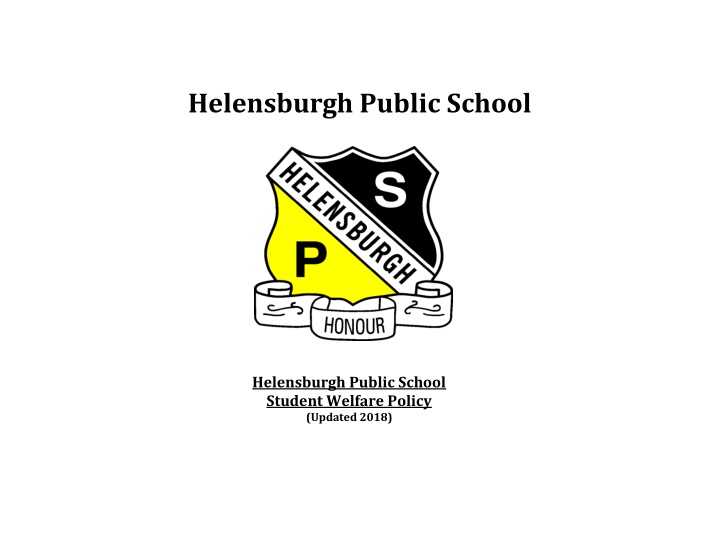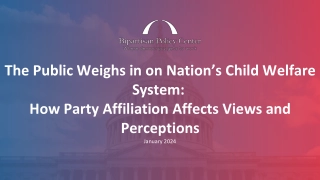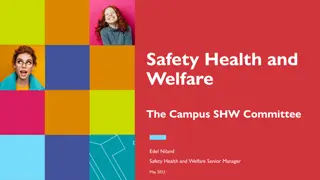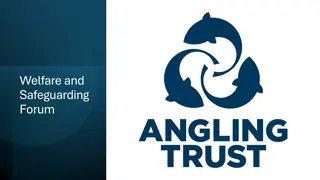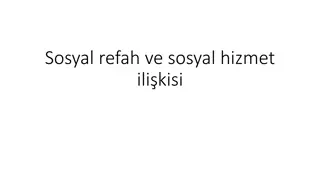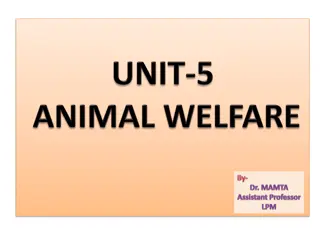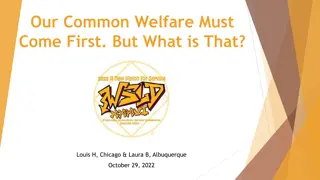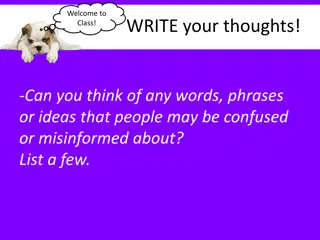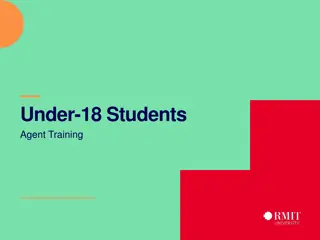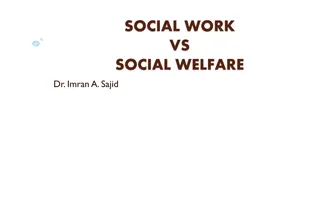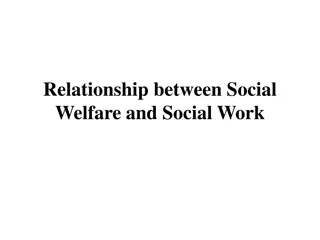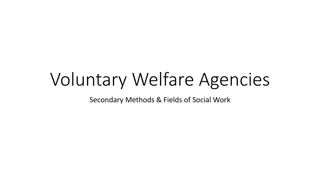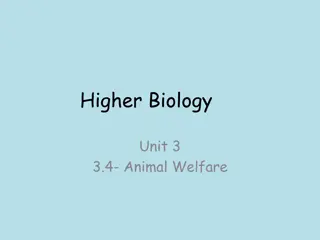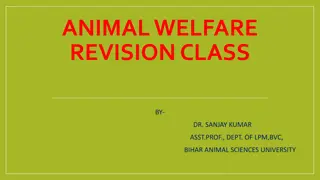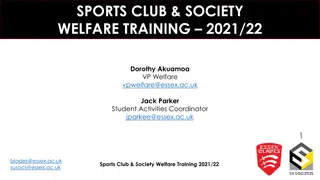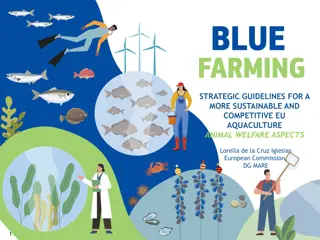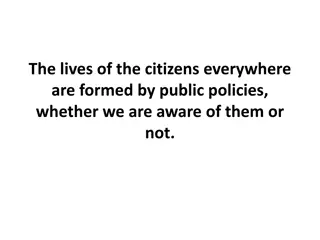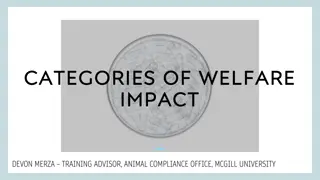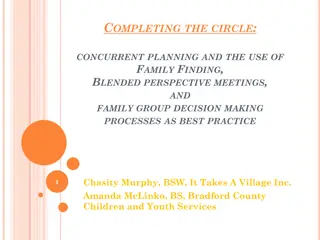Helensburgh Public School Student Welfare Policy
Helensburgh Public School is dedicated to fostering student wellbeing by providing engaging learning experiences, promoting positive behavior, and recognizing student achievements. The school follows a comprehensive welfare policy that focuses on enhancing cognitive, emotional, social, physical, and spiritual wellbeing. Through a collaborative effort involving students, teachers, and the wider school community, Helensburgh Public School aims to create a supportive environment that nurtures students' growth and development.
Download Presentation

Please find below an Image/Link to download the presentation.
The content on the website is provided AS IS for your information and personal use only. It may not be sold, licensed, or shared on other websites without obtaining consent from the author.If you encounter any issues during the download, it is possible that the publisher has removed the file from their server.
You are allowed to download the files provided on this website for personal or commercial use, subject to the condition that they are used lawfully. All files are the property of their respective owners.
The content on the website is provided AS IS for your information and personal use only. It may not be sold, licensed, or shared on other websites without obtaining consent from the author.
E N D
Presentation Transcript
Helensburgh Public School Helensburgh Public School Student Welfare Policy (Updated 2018)
Table of contents 1. 2. 3. 4. 5. 6. 7. 8. 9. Cover Page Table of Contents Statement of Purpose and commitment to student wellbeing page 3 School Discipline Code (School Rules) - page 4 Promoting Positive Student Learning, Behaviour and Wellbeing page 6 Promoting Student Recognition and Achievement page 9 Behaviour Code in NSW page 12 Strategies to Manage Student Behaviour page 13 Responsibilities of Staff, Students and Parents page 19
Helensburgh Public School Helensburgh Public School Student Welfare Policy (Updated 2018)
Statement of Purpose: Our Commitment to Wellbeing Helensburgh Public School s commitment to wellbeing is for students to connect, succeed and thrive at each stage of their development and learning. The aim is to provide planned learning experiences that are challenging, meaningful and engaging, and ensure that all students continually improve through a strong school evaluation process. Teachers play an important role in providing quality learning experiences that develop and shape students learning, character and wellbeing. The school s goal is for students to develop a love of learning and demonstrate positives values by: promoting high expectations, academic effort and a growth mindset, providing children opportunities to have an active voice in their learning, planning student leadership initiatives, delivering social skills programs that support resilience and ethical decision making and providing positive partnerships with parents and carers. Our school has a comprehensive and integrated strategy in place to support the cognitive, emotional, social, physical and spiritual wellbeing of students in a context of quality teaching and learning. Students, teachers, support staff and members of the wider school community aim to have a shared understanding of the behaviours, attitudes and expectations that enhance wellbeing and lead to improved student outcomes.
School Rules - Positive Behaviour Expectations for the Playground All Areas Be Safe, Respectful and a Learner Report issues to a teacher and be an upstander Follow teacher instructions Entry/Exits Assembly Enter and leave sensibly Listen to the speaker Asphalt Bubblers Wait your turn Turn taps off when finished Canteen Stay in bounds Walk Play by the rules Put rubbish in the bins Return equipment Ovals Line up correctly Use your manners Buy for yourself Return to the playground Bus Lines Play Toilets Equipment Wait for the teacher Play by the rules Wear a school hat Be on time Walk into the playground Place bag in class line. Wait for the teacher Stay in bounds Play by the rules Wear a school hat Share the space Return equipment Go in pairs Respect students privacy Wash hands, turn the tap off Quiet voices Leave the area tidy Be on time Kindergarten sit at the front Sit sensibly Walk in one line to the bus Stay seated on the bus
Helensburgh Public School: Positive Behaviour Expectations Expectation Be Safe Acceptable Unacceptable Look after your belongings Keep to appropriate areas and play safely Walk on the concrete / asphalt Store bags neatly Enter/remain in classroom with permission Use road rules and travel to and from school safely Wear a school hat and your school uniform Play ball games in the correct area Use technology responsibly- bring mobiles to the office Being out of bounds Leaving the school without permission Playing dangerously or aggressively Running on the concrete and walking areas Running through school gardens, breaking tree branches, digging holes in the ground, or playing with sticks. Be Respectful Be polite and cooperative 5Ls- Listen to the person speaking Use equipment appropriately and return on time Look after school property and gardens Place rubbish in the bin Use the toilets sensibly Move sensibly and quietly around the school Be an up stander and report issues to the teacher Respect for all class members including teachers and visitors Use technology responsibly Rudeness, teasing and swearing Graffiti Throwing rubbish on the ground Physical aggression, bullying, threatening behaviour Disrespect for people and property Interference with others games and activities Being dishonest Racist and sexist comments and or sending hurtful messages Not listening to teacher directions Disrupting others Not having equipment ready Not trying Being disrespectful Be a Learner Be a confident, resilient learner have a growth mindset Feel proud of your positive behaviour Arrive at school on time Try your best and follow instructions Be a team player Be organised and complete your tasks Reflect on your learning and act on feedback
Promoting Positive Learning, Wellbeing and Behaviour Strategies Learning Support Team The Learning Support Team uses a process of identification, referral, communication, action and review in supporting students learning and wellbeing. The Learning Support Team meets once a week to discuss student referrals and develop actions for students. This may be for students who require either remediation, extension or support for their social, behaviour, physical and emotional needs. Meetings include the Learning Support team, referring teachers and any other appropriate staff. The Learning Support Team and referring teachers are committed to providing personalised support and ensuring there is clear and on-going communication with parents and carers about their child s progress. Students who are identified as having a disability or having significant learning needs are provided personal learning and support plans. The school has an early intervention approach and currently provides individual and small group literacy interventions and depending on the need and circumstance strategies can be developed to support the cognitive, physical, social, emotional or behaviour needs. An example of how the social needs are being catered for some students are the Lunch Club initiative and school mentoring. Quality Teaching Collaborative stage planning based on student achievement is part of the school s strategic plan. Teachers use short planning cycles to identify need, plan evidence based teaching strategies and evaluate their impact every 5 weeks. Assistant Principals work collegially with teachers to support teacher professional learning at a school, stage and an individual level.
Attendance Helensburgh Public School follows NSW Department of Education policy and procedures to support student attendance. This includes strategies of : regular communication about student attendance guidelines, positively reinforcement at a school and an individual basis for good attendance, a daily SMS system to contact parents, and an attendance flowchart for teachers outlining the process to support students with poor attendance. Parent Communication Parent information session and parent/teacher interviews occur in Term 1 to provide early opportunities to share information, provide feedback and in some cases jointly develop specific strategies to support student learning and wellbeing. Parents and teachers are encouraged to organise both informal and formal meetings throughout the year based on need to ensure strong partnerships are formed. Parent education workshops and the social media platform of Seesaw are used with the aim of making the learning in every classroom visible to parents and carers.
Character Education and Creating a Positive School Climate School rules, values and social skills are taught from K-6 in Term 1 to set high expectations for positive behaviour. The importance of reporting issues are regularly communicated to the school executive, teachers, parents and students. Anti-bullying strategies are developed in accordance with the school s action plan. The peer support program is implemented in Term 2 to build a positive school climate by reinforcing prosocial behaviour, resilience and anti-bullying strategies. Year 6 students lead activities in mixed groups under teacher supervision. The Year 6 Buddy Program supports Kindergarten students transition to primary school and provides senior students with opportunities to be responsible role models. A fortnightly learning and playground focus linked to the school s reward system are communicated to teachers, parents and students. The SRC, Green Team, School Leaders and Year 5 Future Leaders provide students with an active voice to identify needs, plan actions and develop strategies. Structured playground games, school library and extra curricular activities are organised to support student engagement and diversity. A range of community based events are planned to support a positive school culture. These include: Harmony Day, Education Day, Grandparents Day and NAIDOC week.
Promoting Student Recognition and Achievement Helensburgh Public School believes that acknowledging good student behaviour is vital to promoting a positive school learning environment. The school has a whole school reward system, based on short term and long term goals, and is both individualised and whole school. By teaching students to strive for their personal best, our aim is for students to be active, resilient and responsible citizens. The following system is in place to encourage the expected positive behaviours in students and to create a positive learning environment to maximise learning. Classroom Rewards System Each classroom teacher uses the ClassDojo award system to motivate students and to create a positive learning environment. Students will receive class-based awards by accruing Dojo points throughout the term. Teachers will design their own class based system for Dojos accrued, eg; for every 10 dojos earned, students receive an extra privilege. Visiting teachers, such as scripture, library, casual and RFF teachers will give out Friendlies to encourage the expected behaviours. Friendlies are given to the classroom teacher, who also awards the student a Dojo point and puts the Friendlies in the box for the assembly prize draw. Achievement Award Certificates for Classroom Success Teachers, with input from the SRC, developed a list of learner qualities and positive student behaviour. Each fortnight, teachers explicitly teach these behaviours in their classrooms. Students are rewarded and encouraged for following and observing these behaviours with Achievement Awards and/or class Dojo Points. Teachers give out 3 achievement awards at a weekly morning assembly. Examples of targeted behaviours include listening, organisation, getting along with others and effort.
Dojo Ticket Draw at Assembly If a student receives an achievement award they will also receive two Friendlies which go into the class box. The Friendlies in the class Friendly box are put into the stage boxes and taken to K-6 assembly. Two winners from each stage are drawn. Winners spin the Friendlies Prize Wheel to secure a prize. Playground Rewards System Positive playground experiences stem from students having a clear understanding of what is expected of them. At HPS we have a fortnightly focus and playground expectations are explicitly taught based on the whole school focus. Students displaying appropriate and targeted behaviours in the playground are rewarded with Friendlies by the teachers on duty. Students then give the Friendly to their class teacher, who gives them a Dojo Point and puts the Friendly into the class box to await the K-6 Assembly Friendly Prize Wheel draw. Whole School Dojo Target Reward All class Dojo points accrue automatically. At the end of each term, each class total is added together to determine a school total. This is published in the highlights. At the end of the term, if a predetermined set target has been reached, the SRC choose a whole school reward from a selection provided by the teachers. Attendance Awards In week 1 of Terms 2, 3 and 4, an attendance achievement award is given to students who have had 100% attendance in the previous term. Attendance is monitored through Sentral. Students will also receive two Friendlies for each attendance award.
Fortnightly Learner Qualities and Positive Behaviours Communicated Playground Classroom Friendlies tokens are given to the class teacher who records a Dojo point and places the token in the class box. Friendlies go towards Prize Wheel Draw and Whole School Target. Class Dojo points system is used by each teacher based on positive learning qualities. Points accrue for class based rewards, Prize Wheel Draw. Achievement Awards Achievement Award is based on learner quality. Achievement award = 2 friendlies and are placed in the class box for the Prize Wheel Draw. Prize Wheel Draw At K-6 Assembly two winners from each stage are selected from the stage box. Winners spin the wheel with a range of rewards to claim their prize! Whole School Prize Attendance awards A whole school reward day will occur at the end of each term. This is to celebrate excellent behaviour. Attendance award = 2 friendlies and are placed in the class box for the Prize Wheel Draw.
Behaviour Code in NSW NSW Public School are committed to providing safe, supportive and responsive learning environments for everyone. We teach and model the behaviours we value in our students. In NSW public schools students are expected to: Respect other students, their teachers and school staff and community members Follow school and class rules and follow the directions of their teachers Strive for the highest standards in learning Respect all members of the school community and show courtesy to all students, teachers and community members Resolve conflict respectfully, calmly and fairly Comply with the school s uniform policy or dress code Attend school every day (unless legally excused) Respect all property Not be violent or bring weapons, illegal drugs, alcohol or tobacco into our schools Not bully, harass, intimidate or discriminate against anyone in our schools Schools take strong action in response to behaviour that is detrimental to self or others or to the achievement of high quality teaching and learning. Behaviour Code for Students: Actions Promoting the learning, wellbeing and safety of all students in NSW Public Schools is a high priority for the Department of Education. We implement teaching and learning approaches to support the development of skills needed by students to meet our high standards for respectful, safe and engaged behaviour.
Strategies To Manage Student Behaviour Teachers in the Classroom (see Classroom Behaviour Flowchart): are responsible for implementing the School Classroom Behaviour Management Flow Chart; are to ensure that all students in the class are aware of the class and school rules, the rewards and the consequences; are to be consistent in applying class rules, rewards and consequences; are to record incidents on Sentral; and are to promptly communicate any concerns with the student s teacher and/or stage supervisor. Teachers in the Playground (see Playground Behaviour Flow Chart): are to actively supervise and intervene quickly when they witness any unsafe or unfriendly behaviours; are to apply fair and appropriate on the spot consequences record any students who need reminding of the rules in Sentral by 8:25am the next day; and will follow the Playground Behaviour Management Flow Chart. Reflection Room In the reflection Room students are guided to reflect on their behaviour choices. Students are given the opportunity, to develop skills they need to help improve the choices that they will make in the future and to develop their understanding of the responsibilities they have, as a member of the Helensburgh Public School community. Students are explicitly taught the school expectations so that they have a clear understanding of acceptable and unacceptable behaviour. Procedures for Out of School Activities Students demonstrating undesirable/unacceptable behaviour of a serious nature at any out of school activity will have the incident recorded in Sentral and referral to the executive.
Procedures for Bus & Bike Students aged 9 or older, who have documented parental permission, are allowed to ride to school each day. These students must follow NSW Road Safety Guidelines ie. They must wear a helmet and follow road rules. Students demonstrating undesirable behaviour of a serious nature while travelling on school buses or riding bikes to and from school will have incidents recorded in Sentral, with further consequences decided by Executive teachers. Students who place themselves and others at risk may be prohibited from riding their bikes to school until such time that assurances can be provided by the parent that the student is now able to operate their bike safely and obey all school and road rules.
Minor Behaviours- Teacher Managed: Out of bounds Calling out Classroom disruption Assembly disruption Off task, lack of effort to complete school work, not following directions, in the wrong place, lateness without a good reason Inappropriate tone/attitude Inappropriate comments Unsafe play e.g. rough games, wrestling Playing in toilets Out of uniform without a good reason Littering Interfering with other peoples games e.g. taking equipment, deliberately running through games Un-sportsmanlike behaviour e.g. cheating, tripping, name-calling Teasing Swearing low intensity instance of inappropriate language Defiance brief failure to respond to teacher instructions or rude behaviour
Major Behaviours - Executive Managed: 3 or more minor behaviours within 2 weeks Rudeness to teachers, other staff or parent helpers including backchat Threats Hurting others Physical violence Bullying Deliberate disobedience Deliberate dangerous play Retaliation Vandalism Theft knowingly taking another person s property Forgery knowingly forges parent signature or uses another students log in Truancy or partial truancy- Student leaves school grounds or classroom without permission or stays out of class/school without permission Spitting on or at others Being a bystander to bullying behavior/not telling the truth to the teacher as witness to bullying and/or encouraging bullying behavior e.g. laughing Direct swearing or verbally aggressive to another person Harassment - student delivers disrespectful messages (verbal, cyber or by gesture) that includes threats and intimidation, obscene gestures, pictures, racist comments or written notes
HPS Playground Behaviour Management Flowchart Minor Behaviour Teacher managed Major Behaviour Executive Managed For any act of violence or serious behaviour, the student red HELP card is sent to the office. Student is removed from the playground by MAPA trained staff. Prompt, redirect, teach. Behaviour improves, students are positively acknowledged. Teacher communicates issue to 2nd half duty teacher. Minor behaviour continues. Teacher discusses issue with student and walks with teacher on duty. Teacher records minor issue on post it then Sentral. Teacher speaks to the students involved or witnesses. Records incident details on post it note (in playground bag) and sends Assistant Principal incident card. 3 Minor issues on Sentral within 5 weeks = attendance at Behaviour Improvement Group (B.I.G) Executive contacts parent and carer. Teacher records incident on Sentral and speaks to Assistant Principal. AP looks into issue and if required places student in B.I.G room for social skills support and edits incident on Sentral. The incident is communicated to parents and relevant teachers. A meeting may be organised to discuss. Note: If the student behaviour is severe or continues: Principal will be involved in determining consequences, which may result in suspension and will be referred to the Learning support team if deemed necessary. Parents are informed of every major behaviour incident Executive decides if a Learning Support Referral or extra monitoring is required in consultation with the parent and carer.
Managing Student Classroom Behaviour Major Misbehaviour Executive managed Positive Behaviour Minor Misbehaviour Teacher Managed Student is sent to the executive for timeout. Principal is notified of the issue. Executive record incident on Sentral. Student exhibits low level misbehaviour. (Traffic light yellow) Teacher redirects and explains rule expectations. Student behaviour improves. Positive Behaviour is displayed by students. All students start on green traffic light. Student earns a Class Dojo for positive behaviour and or showing learner qualities After the executive have looked into the issue and a consequence is applied, parents/carers and classroom teacher are notified. 3 visual reminders = Red traffic light and timeout. Teacher records in sentral as minor behaviour. Teacher redirects and explains rule expectations. behaviour improves start on green. Student See positive rewards of classroom based rewards, chocolate wheel draw and whole school target Minor behaviour continues. Timeout in buddy class. Student returns to class. Student behaviour improves start on green. Student behaviour is monitored. If deemed necessary the student will be referred to the Learning Support Team and a meeting will be organised with the student s parent/carer. If student is violent: teacher calls office and asks for assistance from MAPA trained staff. Incident is followed up by executive or principal to contact parents. A Learning Support referral is determined and a plan developed for the student. Minor behaviour continues. Student is sent to timeout with stage supervisor. Repeated incidents becomes a major misbehaviour .
Student, Staff and Parents Responsibilities Students are expected to: have responsibility to be active learners who exercise self-regulation appropriate to their age and level of understanding; have positive and respectful relationships with each other, their teachers and the community; are supported to strive toward and achieve meaningful goals; are provided with opportunities to succeed, and success is celebrated in a way that is meaningful to the student; are recognised and celebrated; are provided with opportunities to build connections, a sense of belonging and self-worth; achieve success by contributing to a positive, supportive and encouraging learning environment; with identified learning needs benefit from personalised learning and support; with Aboriginal heritage have an individualised personalised learning pathway; and with identified health care needs have an individualised healthcare plan. Staff Supporting A Positive Learning Environment Staff are expected to: enable success by contributing to a positive, supportive and encouraging learning environment; deliver meaningful, engaging and rewarding learning experiences; consistently implement the agreed strategy to create a positive teaching and learning environment; undertake mandatory training to comply with legislative and policy requirements; monitor students and implement adjustments to the learning environment as required; use data from student assessments to inform teaching; acknowledge students for displaying positive behaviour; recognise and celebrate individual achievement and success; and communicate expectations through visible signage, lessons, newsletters and our school website.
Parent and the Community Commitment Parents are expected to: actively participate in the school and help children develop positive connections; actively participate in supporting and reinforcing student learning; support and enable the aspirations of students; speak positively to children about school and their schooling; communicate promptly anything that may affect your child s learning to the classroom teacher endeavour to resolve issues respectfully and at an appropriate time; follow up and support the school with suggested action plans or appointments, if required; be respectful in all communication - we work best as a team; and respect the code of conduct for use of Social Media https://www.helensburgh-ps.com/school-facebook- page.html
